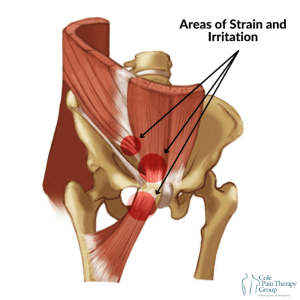Have you ever wondered what makes sport so exciting and important in your life? Whether you play, watch, or simply enjoy the thrill, sport is more than just a game.
It connects people, challenges your limits, and boosts your health in ways you might not expect. You’ll discover what sport really is, why it matters to you, and how it can change the way you see the world around you.
Ready to unlock the power of sport? Keep reading to find out more.

Credit: www.kreedon.com
The Essence Of Sport
Sport is more than just a game or physical activity; it is a powerful force that shapes communities, builds character, and challenges limits. Understanding the essence of sport helps you appreciate why it holds such a special place in human culture. Let’s look at what defines sport and where it all began.
Definition And Scope
Sport involves any activity that requires physical effort and skill, often played according to a set of rules. It can be individual or team-based, competitive or recreational, indoor or outdoor. Your daily walk, a friendly game of basketball, or professional football all fall under the vast umbrella of sport.
Sport also extends beyond physical movement. It includes mental strategy, discipline, and the social connections you build. Think about how chess is recognized as a sport because it demands skill, competition, and structured play.
Historical Background
Sport has been part of human life for thousands of years, evolving alongside civilizations. Ancient Greeks celebrated the Olympic Games, which were more than contests—they were a symbol of peace and unity among city-states.
Consider how different cultures developed unique sports reflecting their environment and values. For example, sumo wrestling in Japan connects deeply with tradition and ritual, while Native American lacrosse started as a spiritual practice.
What sports did you grow up watching or playing? How do they reflect your culture or personal values? Understanding sport’s roots can deepen your connection to the games you love today.
Types Of Sports
Sports come in many shapes and sizes, each offering unique challenges and rewards. Understanding the different types of sports can help you find the right fit for your interests and goals. Whether you thrive in a group setting or prefer pushing your limits solo, there’s a sport that matches your style.
Team Sports
Team sports bring people together to work towards a common goal. You learn how to communicate, cooperate, and rely on others. Sports like soccer, basketball, and volleyball are popular examples where strategy and teamwork play key roles.
Have you ever noticed how winning a game feels even better when you share the victory with teammates? That shared experience builds strong bonds and teaches valuable life skills beyond the playing field.
Individual Sports
Individual sports put you in the driver’s seat, focusing on your personal performance. Activities like tennis, swimming, and running allow you to set your own pace and track your progress closely.
When you compete alone, every success and failure is yours to own. This can be incredibly motivating, encouraging you to push harder and improve continuously.
Extreme Sports
Extreme sports are about adrenaline and testing limits. They include activities like rock climbing, skateboarding, and skydiving that often require high skill and courage.
These sports challenge you physically and mentally, demanding focus and quick decision-making. Are you ready to step outside your comfort zone and experience a rush unlike any other?
Physical Benefits
Sport offers a wide range of physical benefits that go beyond just playing a game. Engaging in sports can transform your body and improve your overall health. Let’s look at how your fitness, strength, and endurance can benefit when you make sport a regular part of your life.
Improved Fitness
Playing sports regularly helps you boost your cardiovascular health. It increases your heart rate, which makes your heart stronger and more efficient. You may notice you can climb stairs without getting winded or that daily activities feel easier.
Sports also help with flexibility and coordination. You learn to move your body in new ways, which can reduce the risk of injury in everyday life. Have you ever felt stiff after sitting all day? Sport can help you move more freely.
Strength And Endurance
Sport builds muscle strength by challenging your body with different movements. Whether you’re running, jumping, or lifting, your muscles adapt and grow stronger. This means you can carry groceries, lift your kids, or do yard work with less effort.
Endurance improves as you push your body to keep going longer than usual. This can help you stay active throughout the day without feeling tired quickly. Think about how much more you could enjoy a hike or a day out if you had more stamina.
Mental And Emotional Benefits
Sport offers more than just physical fitness; it also plays a significant role in improving your mental and emotional health. Engaging in sports can boost your mood, help manage anxiety, and strengthen your emotional well-being. These benefits often come quietly but have lasting effects on how you handle daily challenges.
Stress Relief
Playing sports helps your body release endorphins, which act as natural mood lifters. You might notice that after a game or workout, your stress levels drop and your mind feels clearer. This relief isn’t just temporary—regular physical activity trains your brain to manage stress better over time.
Have you ever felt overwhelmed and found that a quick run or a game calmed your nerves? That’s your brain responding to the positive effects of exercise. Even short bursts of activity can interrupt negative thought patterns and give you a fresh perspective.
Mental Resilience
Sports challenge your mind as much as your body. They teach you to stay focused, push through setbacks, and adapt to changing situations. This builds mental toughness that helps you face problems with a stronger, more positive attitude.
Think about a time when you lost a match or didn’t meet a goal. How did you bounce back? Each experience in sport trains you to handle failure and keep trying. This mental resilience spills over into everyday life, helping you stay calm and determined during stressful moments.
Social Benefits
Sport offers more than physical exercise; it creates opportunities to connect and grow with others. The social benefits of sports enrich your life by building strong relationships and improving how you work with people. These benefits often extend beyond the game, impacting your daily interactions and community involvement.
Community Building
Playing sports brings people together from different backgrounds. You get to meet new people who share your interests, which can help you feel more connected and less isolated.
Think about local sports clubs or neighborhood games. These gatherings create a sense of belonging and pride in your community.
Have you ever noticed how cheering for a local team can unite an entire town? This feeling of unity can motivate you to contribute more to your community in other ways.
Teamwork Skills
Sports teach you how to work well with others toward a common goal. You learn to listen, communicate clearly, and support your teammates.
These skills are useful outside sports, whether you’re working on a group project or collaborating at work.
Next time you face a challenge, ask yourself how you can apply what you’ve learned about teamwork from sports. Could better communication or trust make a difference?

Credit: www.bodylogix.com
Economic Impact
The economic impact of sport reaches far beyond the playing field. It plays a key role in boosting local and national economies. Sports industries generate billions in revenue worldwide. They affect many sectors like manufacturing, media, and services. Understanding this impact reveals how deeply sport supports economic growth.
Job Creation
Sport creates millions of jobs globally. These jobs range from athletes and coaches to event staff and vendors. The industry supports careers in marketing, broadcasting, and sports medicine. It also helps small businesses like gyms and equipment stores. Many communities rely on sports-related employment for steady income.
Tourism And Events
Sport events attract tourists from different regions. Big tournaments fill hotels and restaurants. Visitors spend money on travel, food, and souvenirs. Cities hosting events often improve infrastructure and services. This creates a better experience for locals and tourists alike. Sport tourism boosts the economy by increasing visitor spending and exposure.
Challenges In Sports
Sports offer excitement, competition, and a chance to push your limits. However, they also come with challenges that can impact your experience and safety. Understanding these challenges helps you prepare better and enjoy sports more responsibly.
Injuries And Safety
Injuries are one of the biggest challenges in sports. Even simple activities can lead to sprains, fractures, or more serious damage if you’re not careful.
Safety measures like wearing the right gear and warming up properly can reduce risks. Think about a time when skipping a warm-up caused you discomfort—how could proper preparation have changed that?
Sports organizations often update rules to protect players. Are you aware of the latest safety guidelines for your favorite sport? Staying informed is part of staying safe.
Accessibility And Inclusivity
Not everyone has equal access to sports facilities or training. This limits who can participate and enjoy the benefits of sports.
Inclusivity means creating opportunities for people of all ages, abilities, and backgrounds. Have you noticed how some communities struggle with lack of resources or support for athletes?
Simple changes like adaptive equipment or community programs can open doors for many. What can you do to support or promote inclusivity in your local sports scene?
The Future Of Sports
The future of sports is not just about who wins or loses. It’s about how the game changes with time and technology. Your experience as a fan, player, or coach will transform in ways you might not expect.
Technological Advances
Technology is changing sports faster than ever. Smart wearables now track your heart rate, speed, and even recovery times during training. Imagine having real-time feedback that helps you improve instantly.
Virtual reality (VR) is making it possible to practice and compete without leaving your home. You can face opponents from across the world or train in a simulated environment tailored to your needs. How could this change the way you prepare for a big game?
AI-driven analytics provide coaches with detailed insights about player performance and strategy. This means smarter decisions on the field and a better understanding of strengths and weaknesses. What if your team could predict the next play before it happens?
Changing Trends
Sports are becoming more inclusive and diverse. New leagues and competitions are emerging to welcome different genders, ages, and abilities. This opens up opportunities you might not have seen before.
Esports is gaining ground as a major sport worldwide. It challenges traditional ideas about physicality and skill. Could esports be the next big thing you want to try or watch?
Fans are more involved than ever through social media and interactive platforms. You can influence team decisions, vote on game rules, or even join virtual fan zones. How would you like to shape the future of your favorite sport?

Credit: www.wycliffe.co.uk
Frequently Asked Questions
What Is The Basic Definition Of Sport?
Sport is a physical activity involving skill and competition. It often follows specific rules and promotes fitness and teamwork.
Why Is Sport Important For Health?
Sport improves physical fitness, mental well-being, and social skills. It helps prevent diseases and reduces stress effectively.
How Do Sports Benefit Social Interaction?
Sports encourage teamwork, communication, and mutual respect. They help build friendships and foster a sense of community.
What Are The Main Types Of Sports?
Main types include individual sports, team sports, indoor, and outdoor sports. Each type offers unique challenges and skills.
Conclusion
Sport brings people together, teaching teamwork and fair play. It helps keep the body strong and the mind sharp. Playing sports can be fun and also build discipline. Everyone can join, no matter age or skill. Sport shows us how to handle wins and losses.
It’s more than just a physical activity. It shapes character and creates lasting friendships. Remember, sport is for enjoyment and growth. Keep moving, stay active, and enjoy the spirit of sport.




